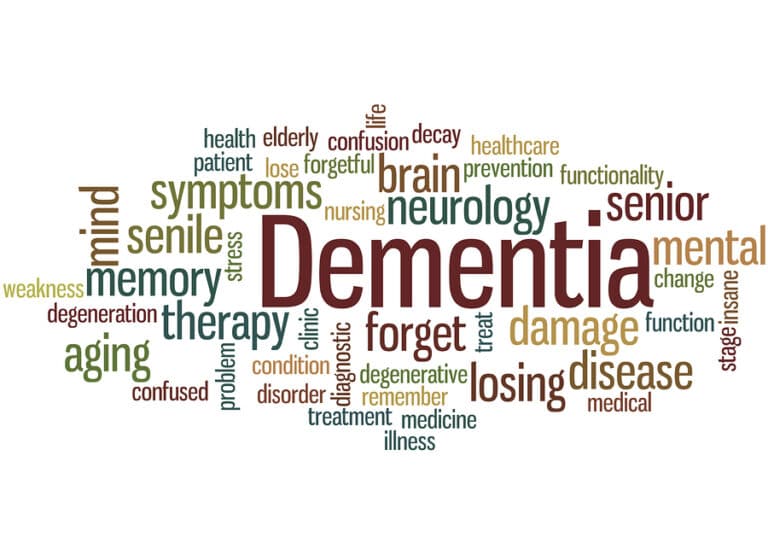Dementia is a term that often gets used interchangeably with Alzheimer’s disease and other cognitive illnesses that tend to affect seniors. Alzheimer’s disease is a type of dementia, but there are others, as well. After a diagnosis, families can often find themselves overwhelmed and not knowing where to turn for the help that they need. Alzheimer’s care providers can help families and seniors cope with these progressive illnesses, but the more information that families have about the different forms of dementia, the better.
Alzheimer’s Disease
Alzheimer’s disease is one of the most common forms of dementia. In Alzheimer’s disease, abnormal protein deposits build up in the brain and affect how neurons communicate. Cell damage is progressive and irreversible. Symptoms gradually get worse as time goes on and people with Alzheimer’s disease lose independence and experience severe cognitive decline.
Vascular Dementia
Vascular dementia is caused by impaired blood flow to the brain. This is often connected to conditions like strokes or high blood pressure. Vascular dementia symptoms vary because of where the brain damage might occur. Some common issues include memory, language, reasoning, executive function, and judgment. People with vascular dementia may experience worsening symptoms as they experience more vascular events or damage.
Lewy Body Dementia
Another type of dementia that is affected by abnormal protein deposits is LBD, or Lewy body dementia. This type of dementia involves when these proteins, called Lewy bodies, build up in the brain. The symptoms are similar to Parkinson’s disease in many cases, and can include hallucinations, difficulty with attention, alertness issues, and cognitive impairment. People with LBD can experience sudden worsening of symptoms or may have a version that progresses gradually.
Frontotemporal Dementia
FTD, frontotemporal dementia, is a group of disorders that involve damage in the frontal and temporal lobes of the brain. FTD often brings language trouble like aphasia, impairment in executive function, and behavioral or personality changes. This is often a gradual form of dementia, meaning that the symptoms worsen over time until the patient experiences severe functional impairment.
Mixed Dementia
It’s also possible for people with dementia to experience more than one type of dementia. This is called mixed dementia and the symptoms often depend on the different types of dementia the patient is battling. Progression of mixed dementia is complicated and can vary quite a bit, simply because the combinations can cause different types of damage. Understanding the different types of dementia involved is absolutely essential in order to understand the symptoms and what to do to help.
Dementia is a complicated illness, no matter which type it is. Having help from home care services that have experience managing dementia in all of its forms is incredibly important for overwhelmed family caregivers. Alzheimer’s care services offer emotional and educational support as well as hands-on assistance with daily tasks. Enlisting the help of Alzheimer’s care providers early on in the diagnostic process can help families learn how to cope and offer the best type of care to their aging family members.
If you or an aging loved one are considering Alzheimer’s care in Aubrey, TX, please contact the caring staff at Ray of Sunshine Senior Care today! (940) 310-3105
Ray of Sunshine Senior Care Provides Senior Home Care Services in Denton, Lewisville, Gainesville, Keller, Grapevine, Coppell, Carrollton, Southlake, Valley View, Aubrey, Frisco, Corinth, Argyle, Roanoke, Counties: Denton County, Tarrant County, Collin County, and surrounding areas.
At the same time, she and her husband were faced with the care of his father on the west coast which presented the unique challenges of long-distance care. These events led to a crash course in the senior care industry and her unending dedication to helping seniors and families in similar circumstances. When not working Cynthia enjoys cooking, gardening and traveling with a focus on visiting State and National Parks.
- Home Care Supports Activities of Daily Living for Seniors - July 26, 2024
- Meal Tips while Caring for Your Senior with Alzheimer’s - July 10, 2024
- Why Social Interaction and Companionship Are Important for Seniors - June 18, 2024


